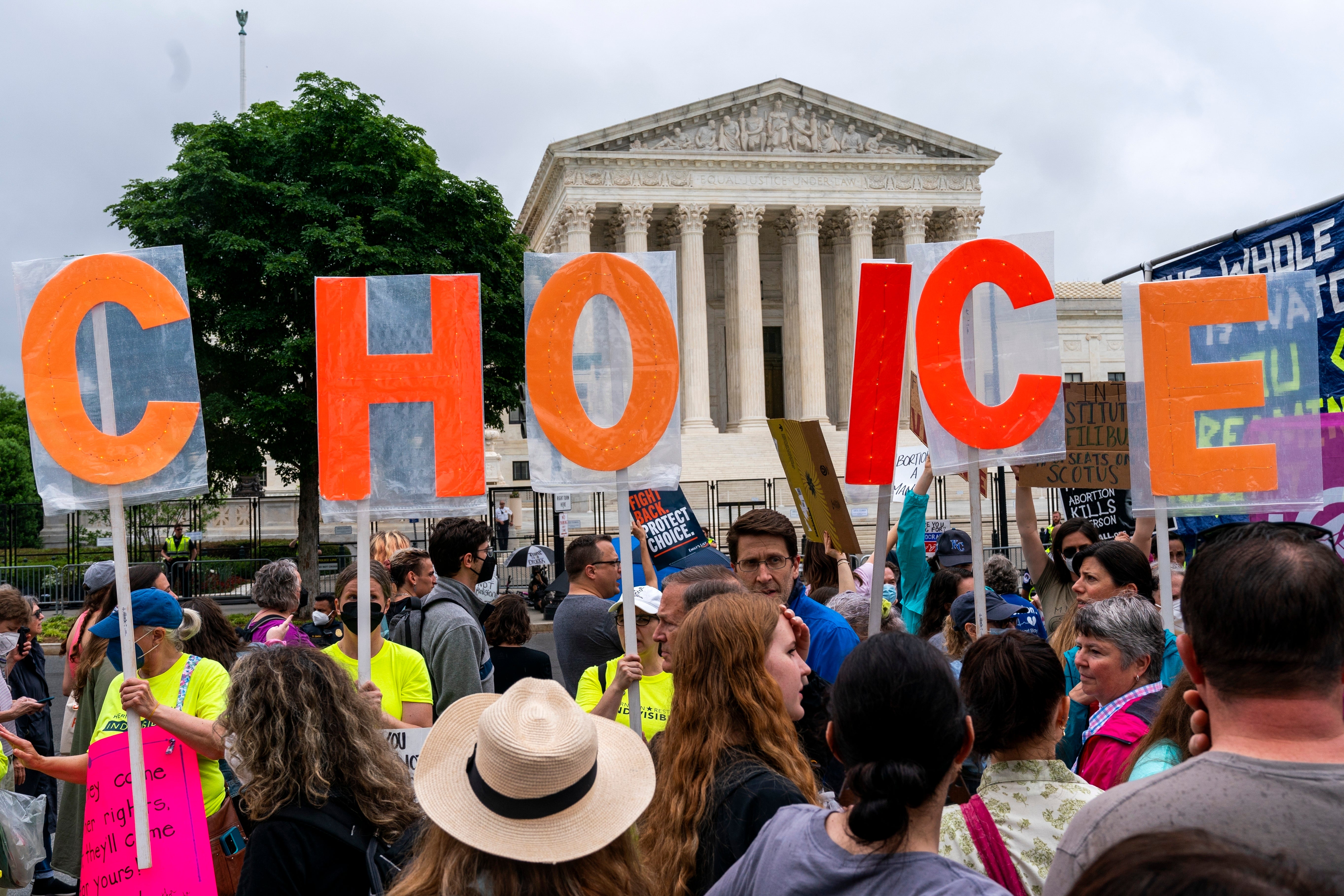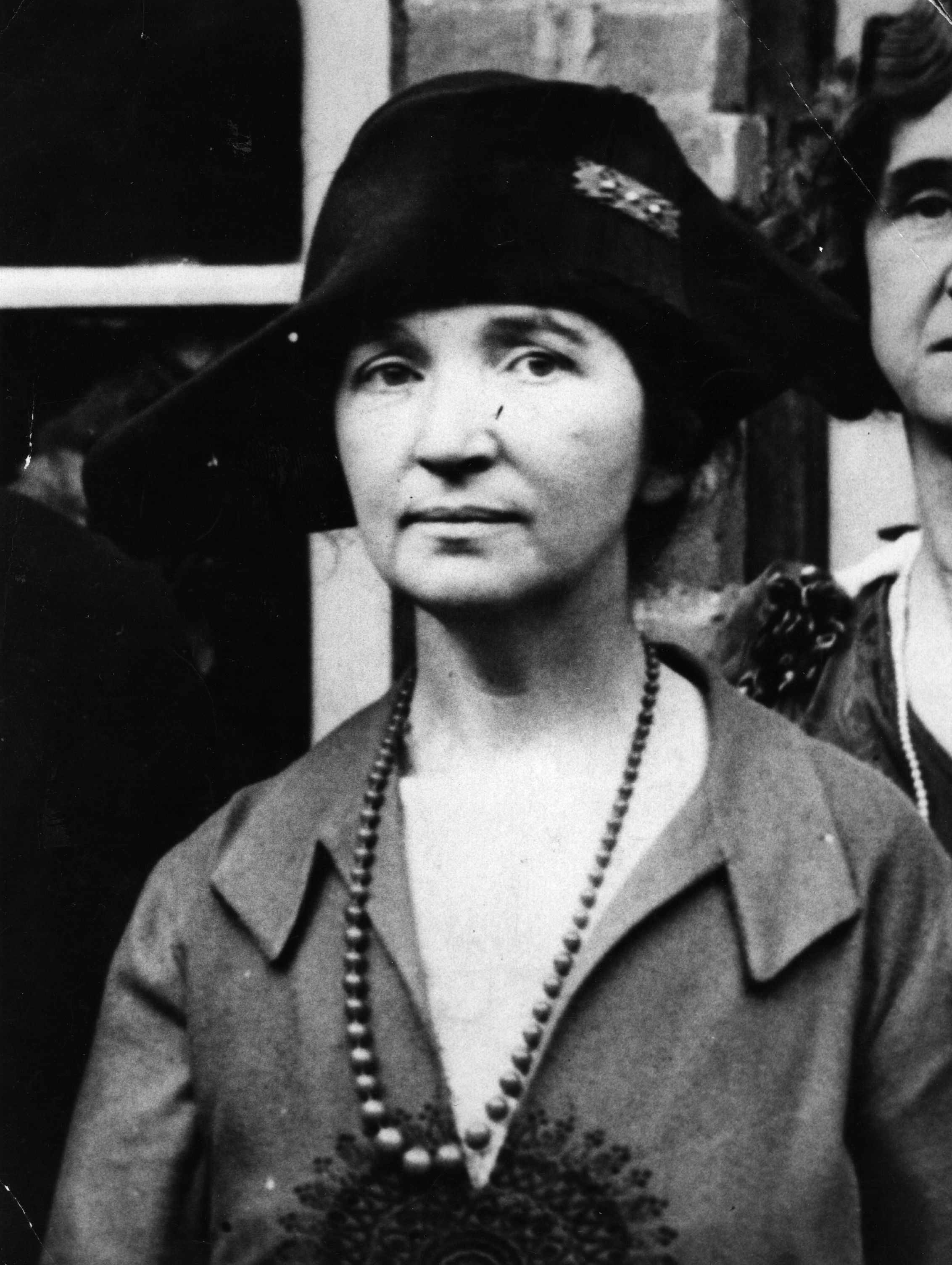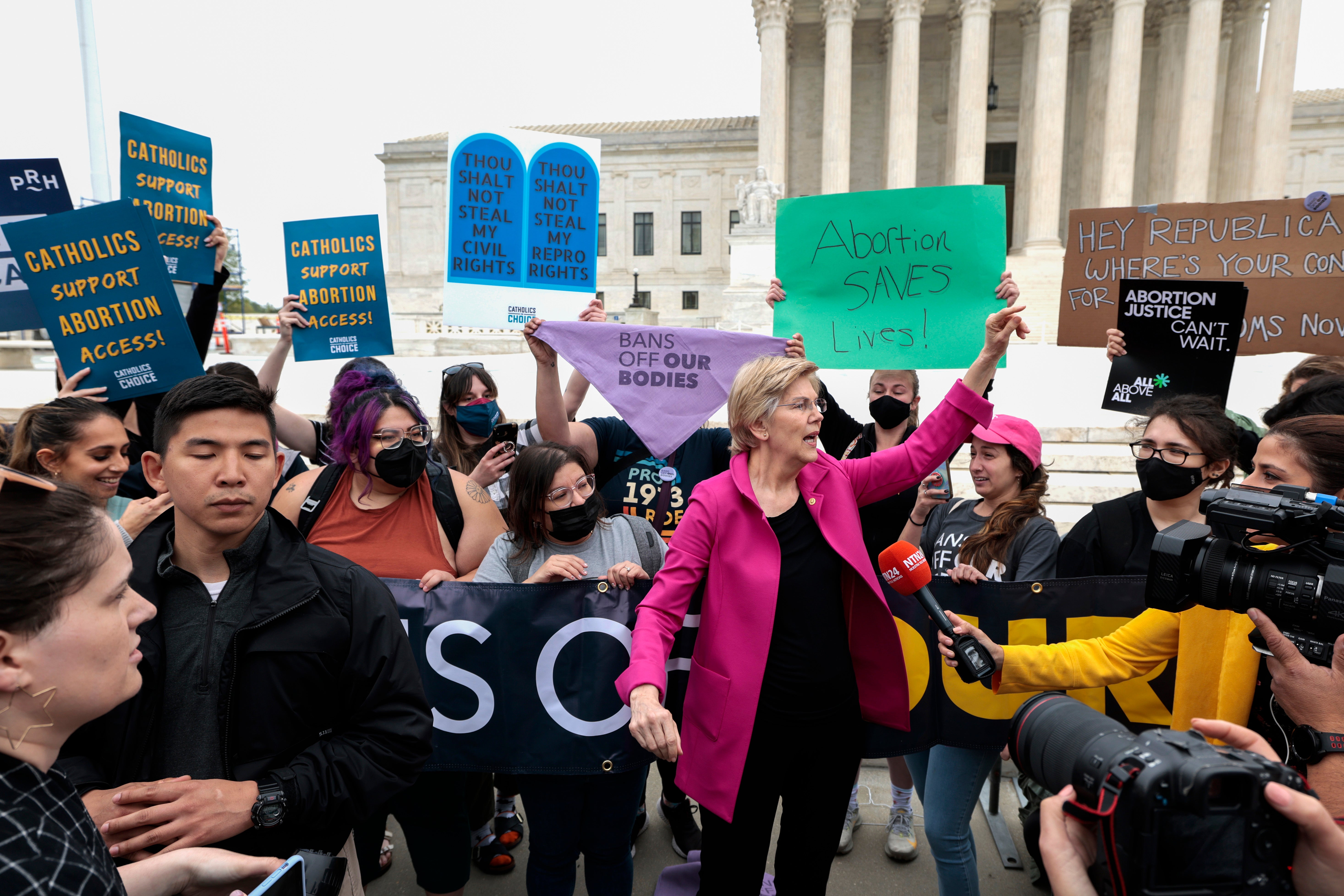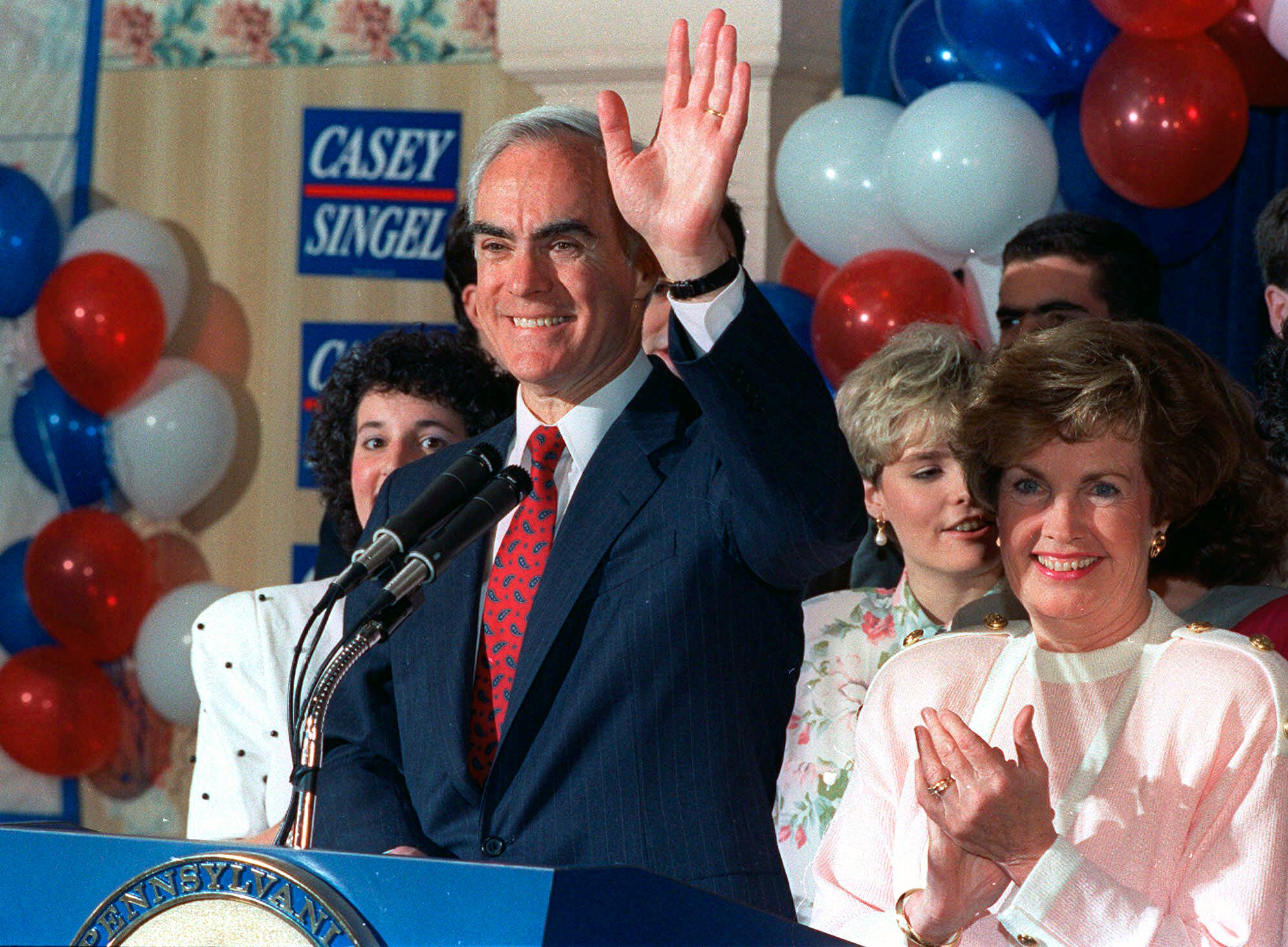
When the Supreme Court’s draft majority opinion striking down Roe v Wade was leaked last month, Planned Parenthood put out a statement saying that its “worst fears had been confirmed”.
For more than a century, the nonprofit has been on the frontline of America’s war over access to reproductive healthcare, ever since its founder opened the nation’s first birth control clinic in New York City in 1916.
It then fought against anti-abortion campaigners to set up one of the nation’s first abortion clinics three years before the Supreme Court legalised it in 1973.
The organisation further cemented a woman’s right to abortion two decades later, when it took on Pennsylvania’s governor in the landmark Supreme Court case Planned Parenthood v Casey.
But Planned Parenthood is now facing one of its biggest battles to date after – on 24 June – the Supreme Court overturned a woman’s constitutional right to an abortion and pushed reproductive rights in America back by 50 years.
On Friday morning, the US Supreme Court ruled 6-3 in favour of a Mississippi law that outlaws abortion at 15 weeks of pregnancy in the case of Dobbs v Jackson Women’s Health Organization.
All six conservative justices voted to uphold the state’s abortion restriction and, in the process, five – excluding Chief Justice John Roberts – voted to strike down the 1973 Roe v Wade ruling which guaranteed a consitutional right to abortion and the 1992 Casey ruling which had further cemented that right.
The historic ruling ended the fundamental right to abortion access for millions of women across America and placed the power to determine abortion access back in the hands of the states.
Planned Parenthood immediately put out a statement saying it would “not stop fighting” for reproductive rights.
The organisation had been anticipating the decision ever since a draft majority opinion on the case was leaked back in May.
Following the leak, Planned Parenthood CEO and President Alexis McGill Johnson said that the writing had been on the wall for decades.
“This leaked opinion is horrifying and unprecedented, and it confirms our worst fears: that the Supreme Court is prepared to end the constitutional right to abortion by overturning Roe v Wade,” she said.
“While we have seen the writing on the wall for decades, it is no less devastating.”
All eyes have now turned to Planned Parenthood as the nation’s leading provider of sexual and reproductive healthcare and sex education in the US to help lead the charge in protecting abortion access across the country.

Planned Parenthood currently has more than 600 health centres across the US and accounts for roughly 37 percent of all abortion services carried out in the US each year.
In the last reported year ending September 2019, it provided 10.4 million medical services to Americans, including 354,871 abortion procedures to women across the country.
Here’s what you need to know about the organisation and the steps it has taken – both now and through history – to protect the right to an abortion:
Action since the leak
Planned Parenthood emphasised that abortion is still “legal” and is “still your right” on its website as it – together with other abortion providers, activists and leaders in Democrat states – scrambled to put in place protections ahead of the Supreme Court ruling.
But the reality is that the organisation had already stopped providing abortions at some clinics in anticipation of the ruling.
On 16 June, Planned Parenthood announced that it had halted abortion services at its only clinic in South Dakota.
This came after Planned Parenthood clinics in Oklahoma already stopped providing abortion services there in May, meaning that women in the two states could no longer get a legal abortion ahead of the ruling.
South Dakota and Oklahoma are among the 26 states with “trigger laws” in place, meaning that abortion will now be effectively banned or severely limited with immediate effect.
Announcing the halting of abortions at its Sioux Falls clinic in South Dakota, Planned Parenthood said that it couldn’t “in good faith schedule appointments later this month, because there is a good chance patients would have to go out of state for their abortions by this time”.
Instead, the healthcare provider was “doing everything they can to make sure patients get the care they need”.
Such actions included helping women navigate the increasingly challenging and complex process to receive a legal abortion once Roe was overturned - in part by directing women to abortion care in states where access is still protected regardless of the Supreme Court ruling.

More “patient navigators” were being hired by the organisation – staff who can help provide women with the information they need, help them find abortion appointments in states where it is legal and arrange financial aid to cover the costs of travelling potentially hundreds of miles for the procedure.
Ms McGill Johnson told CNBC that Planned Parenthood was also boosting staff and funding at clinics in states where it would remain legal in preparation for a growing demand for appointments there – specifically in states that border “trigger law” states.
Services such as birth control and mental healthcare are also being expanded in clinics in states where abortion would be banned or restricted.
A pioneer in birth control
Leading the charge around access to reproductive rights and taking on the Supreme Court have long been in Planned Parenthood’s DNA.
While the organisation is widely known for its abortion clinics, it actually started out in birth control.
It was 1916 when founder Margaret Sanger opened America’s first birth control clinic in Brownsville, Brooklyn, at a time when education around birth control was illegal in the US.
As a nurse who grew up in an Irish family as one of 11 children and after seeing her mother die in poor health aged 50 from multiple pregnancies and seven miscarriages, Sanger began studying birth control methods in Europe.
When she opened her clinic in October 1916, women reportedly lined up all down the block for information on birth control.
But, just nine days later, the clinic was shut down by law enforcement and Sanger, her sister Ethel Byrne and activist Fania Mindell were arrested and charged with sharing birth control information.
Despite the pioneering clinic’s short lifespan, Sanger continued to spread information across America about birth control and, seven years later, she launched the Birth Control Clinical Research Bureau in Manhattan and the American Birth Control League.
The organisations – one focused on researching birth control and the other on population growth, disarmament and famine – would later merge to become what’s now known as Planned Parenthood Federation of America.
Sanger continued to push for access to birth control and in 1936 – 20 years after she opened the first clinic in Brooklyn – birth control was finally legalised in New York, Vermont and Connecticut.

Another almost four decades passed – and landmark Supreme Court rulings including Griswold v Connecticut – before everyone, both single and married, could legally access birth control anywhere in America, paving the way for Planned Parenthood to legally provide birth control services across its clinics.
It was around that time that the abortion rights movement also took off and, in 1970, three years before Roe v Wade, Planned Parenthood began providing abortion services for the first time in its clinic in Syracuse, New York.
As reproductive healthcare have developed, services offered by the organisation have expanded to include the provision of new birth control methods, emergency contraception and the abortion pill.
Beyond abortion access
Though Planned Parenthood was founded on birth control access and is now best known for abortion access, its services extend much further today including to healthcare for transgender patients, cancer screening and HIV testing.
The organisation first started providing hormone replacement therapy (HRT) for transgender patients in 2005 and, by 2019, it offered this care across 200 health centres in 31 states.
It also provides cancer screenings, with almost 600,000 screenings and preventions including breast exams and pap tests carried out in 2019 alone.
Through these services, the healthcare provider was able to detect cancer early on in more than 75,000 women.
Other women’s health services include pregnancy tests, prenatal services and miscarriage care.
As well as being a provider, Planned Parenthood also works on educating the public about sexual and reproductive healthcare and campaigns for the right to access such healthcare through the Planned Parenthood Action Fund.
Its global arm Planned Parenthood Global has worked with over 1,000 organisations providing and educating people on reproductive and sexual healthcare across more than 70 countries.
Ties to the KKK and eugenics
However, while Planned Parenthood’s mission today is “Care, no matter what”, its history is marred by the founder’s ties to the KKK and eugenics.
Sanger’s desire to provide reproductive healthcare access to low-income and minority women was in part motivated by her belief in eugenics – the racist practice of selective breeding based on the belief that some people should not be allowed to reproduce.
She promoted the theory in writings in scientific journals while her public support for the Supreme Court’s 1927 ruling in Buck v Bell contributed to thousands of Americans being sterilised against their will.

Sanger also once spoke at a KKK rally in New Jersey in 1926, writing about the experience in her 1938 autobiography.
“Always to me any aroused group was a good group, and therefore I accepted an invitation to talk to the women’s branch of the Ku Klux Klan at Silver Lake, New Jersey, one of the weirdest experiences I had in lecturing,” she wrote.
Planned Parenthood publicly condemns its founder’s “racism and belief in eugenics” that “are in direct opposition to Planned Parenthood’s mission” in a statement on its website.
Her name was also removed from a New York clinic in 2020.
Violent attacks
As one of the loudest voices in the pro-choice movement for several decades, Planned Parenthood’s abortion clinics have long been targeted by violence from anti-abortion groups and extremists.
In 2015, a Planned Parenthood clinic in Colorado Springs, Denver, was the site of one of the most violent attacks on an abortion provider in history, when a gunman entered the clinic and opened fire on people inside.
Three people were killed in the attack and nine others wounded, with suspect Robert Dear taken into custody alive after a five-hour standoff with police.
Mr Dear claimed that he carried out the shooting because he harboured anti-abortion views, describing himself as a “warrior for babies”.
In 2021, a federal judge ruled that he was mentally incompetent to stand trial.
The 2015 shooting came just over a decade after a gunman went on a shooting spree across two Planned Parenthood clinics in Massachusetts in 1994, killing two and wounding another five.
Other facilities have also been subjected to arson attacks and bombings over the years.
Planned Parenthood v Casey
Aside from violence at the clinics, Planned Parenthood has also come up against powerful opponents of reproductive healthcare rights in the courts – even long after abortion was legalised.
The organisation has been at the centre of numerous legal battles at both a state and federal level, the most prominent being the US Supreme Court case Planned Parenthood v Casey in 1992.
Planned Parenthood sued Pennsylvania Governor Robert Casey after the anti-abortion Democrat introduced new laws restricting a woman’s access to abortion.

Under the 1989 Pennsylvania Abortion Control Act, married women would have to notify their husbands before they could get an abortion and minors would have to get parental consent.
Clinics would also be required to implement a 24-hour waiting period before a woman could get an abortion.
The lawsuit went all the way to the Supreme Court where, in 1992, the justices ruled the law unconstitutional and upheld the right to an abortion based on the 14th Amendment right to privacy which was codified under Roe v Wade.
However, the ruling did make some changes to the constitutional right laid out in Roe.
The Supreme Court removed Roe’s trimester framework for when an abortion could be restricted, creating instead an “undue burden” standard.
This undue burden standard allowed states to restrict abortion access so long as it did not create a “substantial obstacle” to the woman getting an abortion before the foetus is viable.
The change paved the way for some states to implement laws such as the 24-hour waiting periods – laws that pro-choice activists argued disproportionately impacted low-income women and those who lived far from clinics.
Yet, despite the restrictions, Casey was significant as it upheld the landmark Roe ruling from two decades earlier.
In the majority opinion, the justices stuck with the precedent set in the 1973 case, writing: “It is therefore imperative to adhere to the essence of Roe‘s original decision, and we do so today.”
What now?
Now, that precedent and the constitutional right of a woman to get an abortion has been struck down.
But Planned Parenthood is not going down without a fight.
Moments after the ruling was issued, the organisation released a statement saying: “The Supreme Court just overturned Roe v. Wade, ending our constitutional right to abortion.
“We know you may be feeling a lot of things right now — hurt, anger, confusion. Whatever you feel is OK. We’re here with you — and we’ll never stop fighting for you.”







